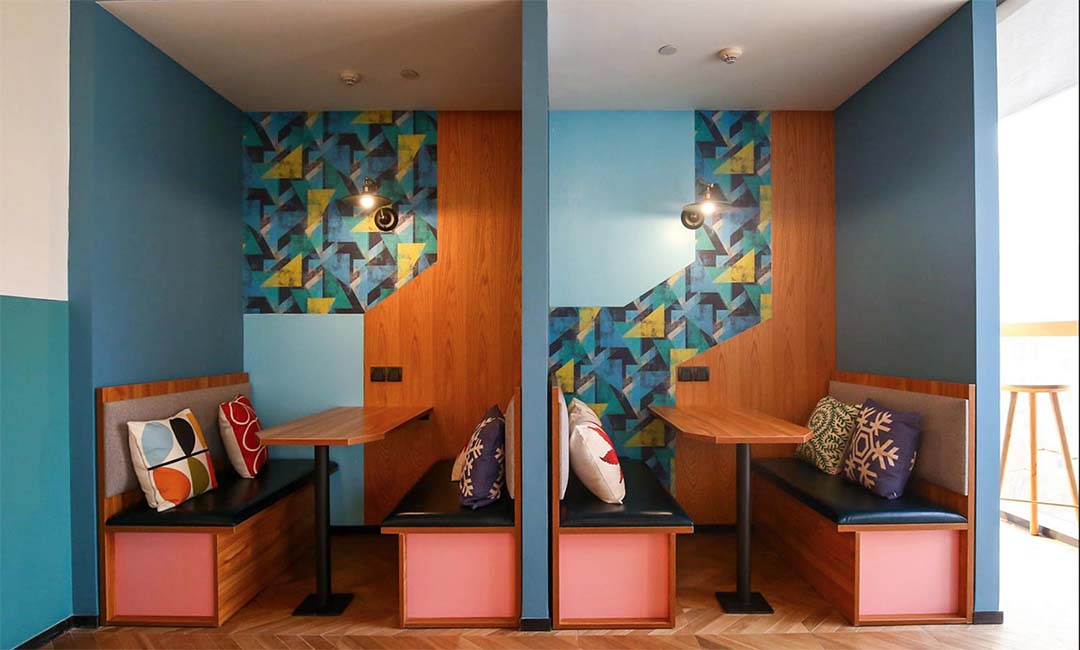Singapore developer CapitaLand has just become the latest newcomer to a hotly competed co-working space sector in China by officially launching its first China office space in China’s eastern coastal city Shanghai earlier this week.
With a floor space of 2,700 sqm, and about 450 desks, its co-working space, C3 (C ‘cube’), located in Wujiaochang of Yangpu district, already has more than 60% occupancy rate with 23 tenants which includes video site Bilibili since its soft-launch two months ago.
Tapping the sharing economy mindset
China’s co-working boom, according to the ‘Coworking: Fad or fixture’ report by Jones Lang Laselle (JLL), a global real estate services firm, is largely attributable to the plethora of tech startups looking for flexible and affordable office solutions amidst China’s push to further fortify an already vibrant tech startup ecosystem.
Additionally, the rise of millennial workforce who prioritizes work/life balance and flexible working hours coupled by the tide shift towards sharing economy also contributed to the co-working space flourish, according to the same JJL report.
For instance, 81 percent of white-collar respondents in Shanghai now readily accept working from flexible spaces, a massive increase from the 24 percent reported at year-end 2013, JJL’s recent market survey finds out.
The market for co-working spaces in China is growing exponentially. Chinese co-working space market is growing at a rate of 30% per year and by 2030, 30% of office spaces will exist as co-working spaces.
Uphill competition
China’s co-working space was rife with uphill competition from mostly local players, until WeWork, one of the pioneers of the concept first established its presence in China earlier last year.
The first competition WeWork encountered in China was a spat between it and one of its local counterparts over brand infringement. China’s UrWork launched in the year of 2015, modelled after WeWork, registered UrWork brand locally.
In the September of 2017, the battle between WeWork and UrWork went as far as a lawsuit over their similar names. UrWork already launched in Manhattan and Singapore, but its name is stuck in China. UrWork lost the lawsuit and is now internationally known as UCommune.
The battle continues. Prior to UrWork’s merger with New Space, which the value of the amalgamation aggregates to approximately RMB 11 billion and will become the largest co-working space in China, WeWork’s shopping spree landed Naked Hub for US$400 million after acquiring Singapore-based SpaceMob last August.
Coming to such a highly competed market one year later than a global rival and facing fierce challenges from more established local players, including the likes of UCommune (known as UrWork in China) and KrSpace (a subsidiary of 36Kr), CapitaLand believes that differentiation will be important.
Chief Executive of CapitaLand, Lim Ming said to reporters on Monday, “We need to actively interact with our customers to gain an insight into their needs,” adding, “a better understanding of customer needs in different markets, such as China and Singapore, enables us to offer proper products and services.”
WeWork is currently valued at around US$17 billion, while UCommune is valued at US$1.7 billion. Kr Space raised US$94.6 million in its latest round of funding with plans to add 300,000 sqm of space by the end of 2018.
Taking the battle outside of China
While CapitalLand and WeWork are launching their business in the China market, their counterparts in China, long bothered by a cut-throat competition, have all taken steps to take their business to Southeast Asia with Singapore being the entry point.
36Kr’s KrSpace, after a reported failed merger attempt with WeWork’s China business, said that it would also set up shop in Singapore as part of its drive to establish its presence in SE Asia.
UrWork also has fleshed out its aggressive overseas expansion plan that, in the span of next three years, the office renter is looking to venture into 35 global cities, pumping in US$500 million worth of funding for the Southeast Asian market, investing US$3 million in Indonesia. It already has a presence in Singapore, with its co-working spaces set up at Suntec City, with 1,282 sqm of space, and at JTC Launchpad @ one-north with half the size of the former.
Disclaimer: KrSpace is the co-working space subsidiary of 36Kr, which is KrASIA’s parent company.
